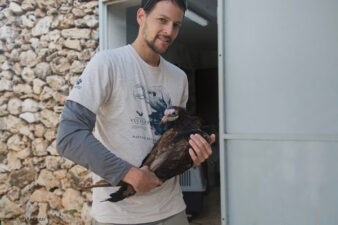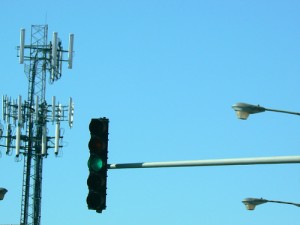
Kando sends sensors into a sewer find Covid-19 hotspots in your towns and cities. Should we bring one into the White House?
Is there a Covid-19 hotspot growing in numbers on Fifth Avenue near the Empire State Building or is it happening now in Brooklyn? Look to your sewer and it will tell you endless information about the health or problems of a local population.
Human waste carries knowledge and disease, and it also carries the pharmaceuticals we use to keep our problems at bay. Now a wastewater data company called Kando is being hired in Israel to confirm Covid-19 outbreaks in the country. Kando can also predict where an outbreak will occur.
Covid-19 can be detected in sewer systems, and knowing where it is being flushed – means health services can get a better handle on local Covid-19 hotspots and outbreaks.
“Monitoring our sewers is like taking the ‘blood test’ of a city,” said Ari Goldfarb, the CEO of Kando.
Kando is the Israeli cleantech company that was hired for the task. In good days the company provides data to wastewater management companies so they can understand how to use their resources for treating pollution optimally. The company started a pilot this summer with Israeli universities and announced recently it will continue its sampling throughout Israeli cities. Some $220,000 USD was put into to support the pilot until the end of this year.
The company takes samples from sewers which are brought back to a lab to undergo polymerase chain reaction – or PCR – testing. We assume that in the future some better “real time” and online data assessment tool will be put in place to make sense of the data, because anyone anywhere can pull a sample of sewage out of a manhole and test it. The questions will be – what are we looking for and what does it mean in comparison to the density and population.
“Shit” down streets, not nations
Contract tracing has become impossible with dense communities and neighborhoods in poorer demographics in Israel where up to 12 people can live in one small apartment, or more if extended families are brought in. But it’s been impossible to segregate these areas in red or green zones: they predominantly poor ultra-Orthodox Jewish neighborhoods and poor Muslim enclaves.
“The successful initial results of this pilot study demonstrate that our sophisticated wastewater monitoring systems can help detect new outbreaks and determine exactly where and how serious they are,” Goldfarb says.
The company partnered with local universities Ben Gurion University and the Technion “to offer actionable insights to authorities, alarming them to outbreaks even before residents are symptomatic. Our hope is to help cities around the world prevent wholesale shutdowns and mitigate future outbreaks.”
Kando puts its sensors into manholes and say they are able to quantify and delineate this environmental and epidemiological data, allowing them to narrow down measurements to neighborhoods, and potentially streets.
The coastal city of Ashkelon in Israel was chosen as the pilot site for the project as it was believed to have a low number of case. But what researchers discovered was something entirely different: significant remnants of the coronavirus in municipal wastewater, indicating early detection of outbreaks in local neighborhoods.
The results suggest that tracking coronavirus remnants in the sewer network is a timelier and more efficient gauge of the extent of outbreaks than testing individuals – especially given the asymptomatic nature or delay in symptoms of those suffering from COVID-19.
The results of the pilot study will offer authorities capabilities for early detection of new outbreaks and can help avoid total lockdowns by pinpointing affected areas, the company believes. Israel is in the third week of a 3-week lockdown, its second nation-wide lockdown since the middle of March, 2020.
Helping identify hubs of contagion can allow a much more localized response – avoiding the need for more sweeping lockdown measures. And that is something we all want.
“Identifying traces of the coronavirus in city wastewater is extremely challenging due to the various types of substances found in sewage systems, including industrial wastewater, which can dilute or destroy remnants of the virus,” said Professor Nadav Davidovitch, Director, School of Public Health at Ben Gurion University, and who is part of the project:
“Our unique methodology enables us to detect and trace the presence of the virus and calculate its concentration with these substances factored into the equation, and to integrate epidemiological evidence in order to pinpoint emerging COVID-19 hotspots. This will allow authorities to take actions to contain future outbreaks. This type of interdisciplinary science will continue to help disease containment methods – for coronavirus, and beyond.”
Artificial Intelligence going down the drain?
Kando provides Internet of Things data for for wastewater management with operations in North America, Europe, Australia, Asia and Israel. The company was founded in 2011 and is headquartered in Israel. They can detect blockages in real time before extensive damage is done to sewer systems.
It is no coincidence that Israel produces a disproportionate number of wastewater data companies for its size: Israel has been a global leader for greywater recycling. It reuses about 97% of its water as grey water, but it comes with challenges as these lines can not contaminate drinking water for domestic use. Greywater contains a high amount of bacteria and toxins, even pharmaceuticals, so much to the point that organic vegetable growers in Israel don’t want to use the subsidized water offered to them for fear of a chemical load in their produce.
Who wants to eat someone else’s cancer medicine or birth control pills? There is also cocaine, codeine and methadone.
But silver linings? Some startups make new paper from sewage waste.
When I studied biology in university the professors always told us that there is gold in animal excrement –– how well an animals is doing, its habitat, its link in the web of life. I spent a year studying the waste of small amphibians to understand how populations of indicator species bounce back after forest fires or clearcut logging.
In times like these we need to put ourselves back into the circle of life and look for answers even in the lowliest places – the toilet bowl.
The case of an environmental fallacy?

Alon Tal founded a number of NGOs, including the Arava Institute in Israel
Alon Tal, environment leader and lawyer from Israel cautions against this “looking for a needle in a haystack approach”. He has experience looking to wastewater for pollutants, including pharmaceuticals. He isn’t convinced this is a great method for detecting Covid-19 cases in the city:
“When you look at things at the neighborhood level, you just have to be careful you don’t commit, the “ecological fallacy”.
“Here’s a good explanation on you tube:
“So yes – it is good to know if there appears to be some residual corona in the sewage system of a city,” Tal tells Green Prophet. “But it can’t tell me a whole lot. It might be from a single family. It might be from an old age home which is in danger – or from an asymptomatic yeshiva student.
“I imagine that in the peak incidence days, Bnei Brak’s sewage [in Tel Aviv] might have been slightly higher than other communities. But you’d have to be very lucky to get samples to prove this. Concentrations are de minimis.
“In short — I know they used sewage to try to identify illegal use of narcotics and such. But, it’s not entirely clear to me why this makes more sense than simply random testing several hundred people directly. That might tell me much more about where morbidity is happening and how to intervene,” he concludes.



